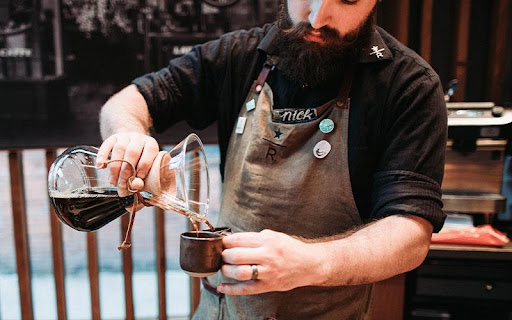Table Of Contents
Coffee may be a ubiquitous part of modern life, but the main reason most of us drink it comes down to one aspect of coffee – the especially high concentration of caffeine.
But it can be easy to forget that caffeine is actually a powerful stimulant. It encourages your mind to keep pushing on by essentially tricking it into thinking that it’s not tired – and that can lead to plenty of negative long-term effects. But caffeine is addictive too, and that can make quitting difficult. But with these steps and a little willpower, you can kick your coffee habit for good.
Set Goals and Determine Your Intake
Caffeine isn’t a dangerous substance in and of itself, and it can be a healthy part of your everyday diet. So your first goal should be figuring out exactly how much coffee you’re drinking and how much you’d like to cut those levels down to. There’s a decent amount of room in terms of what’s safe for human consumption, with research indicating that the average adult can safely consume up to four cups of coffee a day. But that doesn’t take into account the discomfort and jitteriness that often comes with taking coffee, so you’ll want to find a balance that’s right for you. Determining where you are and where you want to be will help you come up with a plan.
Reduce Your Consumption
That’s easier said than done, but getting yourself off of coffee doesn’t have to be a nightmare. The trick is finding out what works for you and having enough self-kindness to recognize when you’ve made mistakes and adjust accordingly. Most people don’t quit a drug the first time they try it, and that holds true as much for caffeine as it does for more illicit substances.
Consider any mistakes along the way as learning exercises as you find out what’s the right balance for you. Some people can simply quit coffee by going cold turkey. Others need to gradually cut down on their consumption or start incorporating coffee substitutes into their diets. Getting some level of caffeine may be necessary to cut down on the side effects of withdrawal like chronic headaches and irritation, but you can soothe some of the habitual need by substituting some of your morning coffee for alternatives like tea or mixing decaf with traditional coffee. Mushroom coffee is especially promising as an alternative because it cuts the caffeine content roughly in half while still tasting the way you expect coffee to taste.
Find a Substitute
Just because you’re not drinking coffee anymore doesn’t mean that you can’t drink anything. There are a lot of delicious, hot drinks that can serve as viable substitutes for coffee. In fact, many offer the energizing properties of coffee without the hangover and also come packed with a whole range of advantages like antioxidants, vitamins, and minerals. And there’s no lack of options to choose from.
A lot of natural remedies can serve as sensible substitutes for coffee. Green, black, and white teas are all more reasonable sources of caffeine, and there are also more exotic choices like chickory coffee and golden milk. There’s even a burgeoning market for scientifically-engineered formulas that are designed to replace coffee. MUD\WTR is one of the more interesting choices within this market.
Quitting coffee can be a real challenge, but you’re up to the task. Just remember that making a mistake isn’t the same as failing and that you’re the one who ultimately decides what’s right for you. And while a coffee detox isn’t always easy, it’s well worth trying even if you’re not sure that you have a problem.






